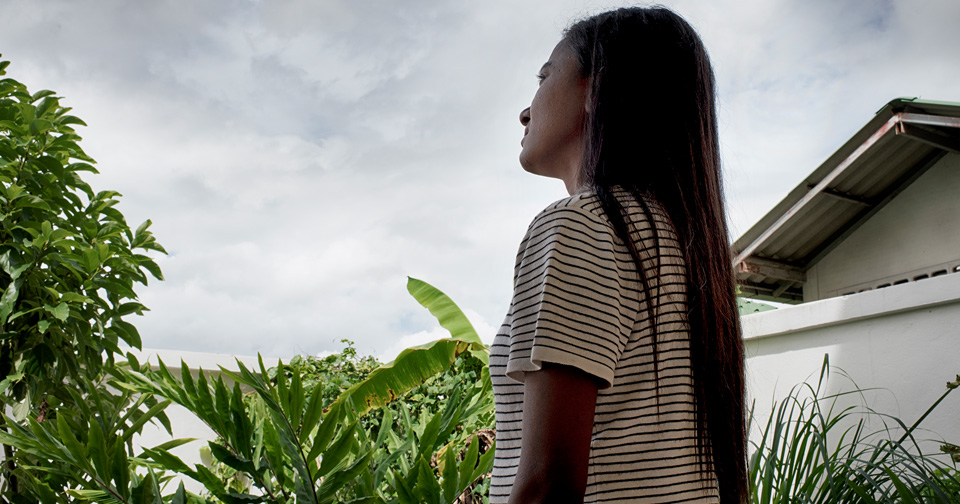Journeys out of the Ordinary | Manee’s story
“I’m teaching my sons about respecting women.” —Manee, Thailand
Date:

My parents were migrants from Myanmar, but even though I was born in Thailand, I’m still a migrant. My parents were poor. They worked repairing umbrellas, collecting and sorting rubbish and other odd jobs. I went to school for a while in Myanmar, up to 3rd grade, but my parents stopped sending money. I felt sad to stop going to school. I tried to go to school later in Thailand, but I didn’t do very well so I stopped going.
I had my first “job” when I was eight years old. My mother sent me to Bangkok with some people she said were relatives. I was told to sell flowers on the street. The first day went well, but the next day I only sold one flower. When I went back, I was hung by my hands and beaten with a wire. Since they said I was no good at selling, I was forced to beg. I made more money begging, so I had to keep doing it. I wasn’t allowed to keep the money, I just got food and a place to sleep.
I wanted to go back to my parents, who were in another city. I saw a policeman, and I cried and told him I wanted to go home. And he wanted to find the people who made me beg, but I knew I’d be in trouble if I told him, so I pretended I didn’t know. I was taken back to my home city and I looked for my parents. I knew I could find my mother at the market and I began working with my little brother collecting rubbish, begging and doing odd jobs for a while.
But my mother was unhappy with this income, so she sent me to Bangkok again, with her sister, my aunt. I had never heard about the sister before, but I was sent to stay with her anyway. She made me beg on the streets. One night, the aunt’s husband came in while I was taking a bath and tried to molest me, but I threatened to scream. He went away, but the same night their son came into my bed, and this time when I threatened to scream, he didn't care. I was 9 years old.
I told my aunt the next day, but she didn't believe me, and I continued to beg for money. I went to the police again and again, and they wanted to know who the people were who were making me beg, but I didn't dare to tell them. I was sent back to my home city again, but this time I was angry with my mother.
I got married for the first time when I was 14. I’ve been married seven times and I have four sons. In my fourth and fifth marriages, there was violence. Then, when I was 15, my father died, and I don’t know where my mother is.
Now I meet with other women like me, who suffered violence. There is a social worker who is like a sister to me. I finally have someone I can talk to about my difficulties. Sometimes we laugh. I even got some training, and I try to help by finding others to attend the training. I’m also teaching my sons about respecting women and not hitting them.
My message to other women is: “You don’t have to accept violence. There are places to get help and people who will help you to get out of a violent situation, like crisis centres.”
Safe and Fair supports building women’s networks and support groups. These can be life- changing for women who have been affected by violence. Women’s groups and community- based organizations provide support, access to information and linkages to essential services.